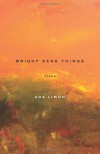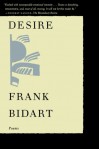1
Followers
29
Following
Seanachie: A Boston Irish Storyteller and Part-Time Shaman
Books about place, magic, Faeries, Ireland, sex, God, and love
Currently reading
New Orleans as It Was
New Orleans after the Civil War
Visions and Beliefs in the West of Ireland (complete: First & Second Series)
Bright Dead Things: Poems
The Subtle Art of Not Giving a F*ck: A Counterintuitive Approach to Living a Good Life
Desire: Poems
Selected Poems 1976-2012
An Anthology of Modern Irish Poetry
I Am An Executioner: Love Stories
An Artist of the Floating World
The Underground Railroad (Oprah's Book Club): A Novel
 Colson Whitehead’s novel The Underground Railroad is marvelously inventive and fiercely told. Many have commented on his rendering of the Underground Railroad as an actual steam railroad, with engines fronted by cowcatchers, the occasional well-appointed passenger car, and secret depots under the earth all over the south manned by stationkeepers working at great peril from many walks of life. Even more inventive are the alternative realities of the various states at each station along the way, each of which appears to riff on actual historical events (e.g., Nightriders, the Tulsa race riot; eugenics). South Carolina is a place of federally sponsored Nego uplift with a dark secret. North Carolina is a place of dark genocide, a fingerpointing society of those who sacrifice their freedoms out of fear and are proud of it, and where abolition of slavery means the murder of dark skinned people and the importation of starving Irish to pick their cotton instead. Tennessee is largely lawless, and Indiana hosts an all-black farm where the residents live with dignity, culture, and its own library.
Colson Whitehead’s novel The Underground Railroad is marvelously inventive and fiercely told. Many have commented on his rendering of the Underground Railroad as an actual steam railroad, with engines fronted by cowcatchers, the occasional well-appointed passenger car, and secret depots under the earth all over the south manned by stationkeepers working at great peril from many walks of life. Even more inventive are the alternative realities of the various states at each station along the way, each of which appears to riff on actual historical events (e.g., Nightriders, the Tulsa race riot; eugenics). South Carolina is a place of federally sponsored Nego uplift with a dark secret. North Carolina is a place of dark genocide, a fingerpointing society of those who sacrifice their freedoms out of fear and are proud of it, and where abolition of slavery means the murder of dark skinned people and the importation of starving Irish to pick their cotton instead. Tennessee is largely lawless, and Indiana hosts an all-black farm where the residents live with dignity, culture, and its own library.This novel is a brutal runaway tale, pitiless and bleak, but not without hope. Cora escapes from her Georgia farm, and is pursued and captured several times by the resolute slavetracker Ridgeway and his enigmatic well-dressed ten-year-old black sidekick Homer. Scarred by plantation life, Cora likes the sound of a world where justice triumphs in the end and her owner, overseers, and Ridgeway get their just rewards, but tells herself she doesn’t believe it. In the morning, she admits maybe she believes it a little bit.
The prose is workmanlike rather than lyrical; one suspects that, like Cora, Whitehead is a little suspicious of versifying, which sounds too much like prayer. Where Whitehead occasionally stumbles is the insertion of manifesto-like language untethered to and unspoken by a particular character. It mars the narrative and the events speak for themselves. They don’t need to be tied in oratorical bows, and, moreover, he depicts some eloquent speakers -- it would have been better to insert the oratory in their mouths.
All in all, however, this short novel makes you wish at the end that we saw more stops along Cora’s way, and yet confident such stops occurred and Cora lived through them, but on account of her experience has not yet built enough trust in the reader to share her secrets.











